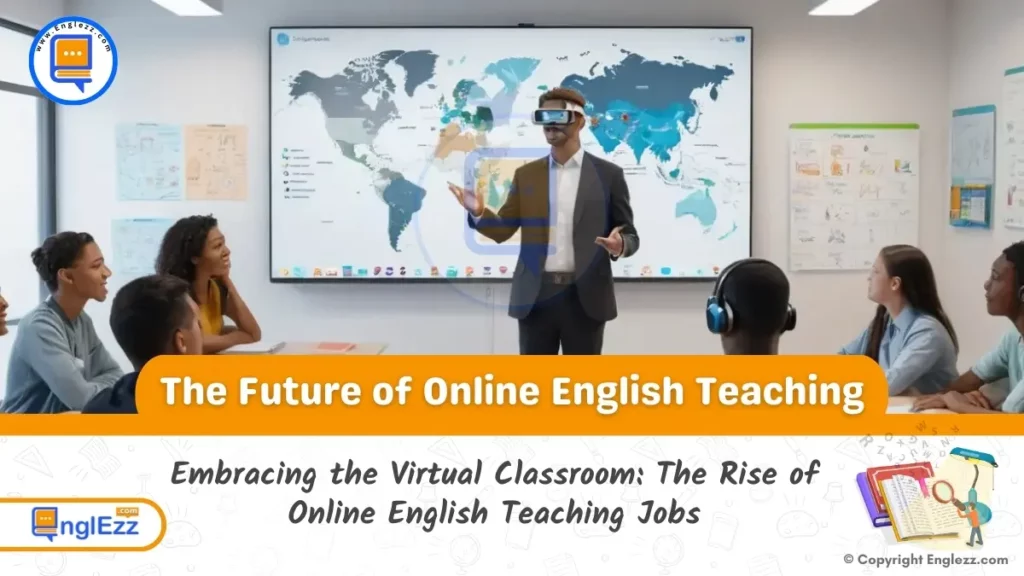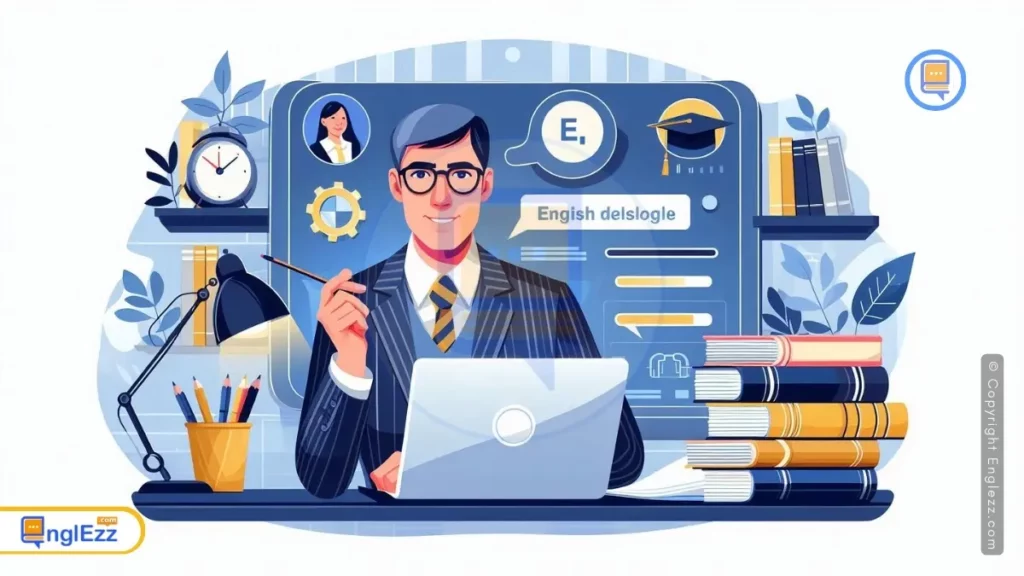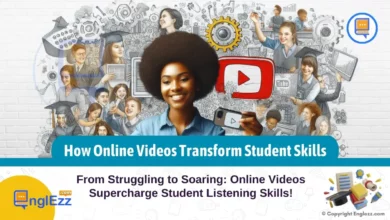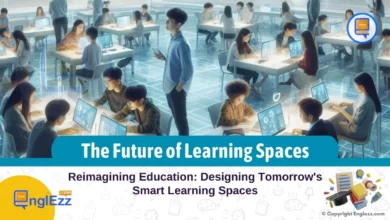In the evolving landscape of education, the digital realm has become a vibrant hub for learning, paving the way for a new era in teaching. With the rise of online English teaching jobs, educators worldwide are embracing the virtual classroom as a dynamic platform to connect with students from across the globe. This shift towards virtual classrooms not only offers unparalleled opportunities but also presents teachers with unique challenges as they transition from traditional in-person teaching to online platforms.
As educators navigate this transformative journey, they encounter a spectrum of possibilities and complexities. The allure of flexible working hours and geographic independence beckons, promising a newfound freedom in structuring professional lives. However, alongside these freedoms loom challenges such as adapting pedagogical approaches to suit virtual environments and mastering technological tools to enhance student engagement.
Table of Contents
- Embracing the Virtual Classroom: The Future of Online English Teaching
- Embracing Online Teaching Opportunities
- Adapting Teaching Skills for Virtual Learning
- Overcoming Challenges in Online Education
- Training and Professional Development for Online Educators
- Building a Strong Online Teacher Community
- Conclusion: Embracing the Transformative Journey of Virtual English Teaching
- Frequently Asked Questions About Online English Teaching:
- Q: How can teachers maintain student engagement in virtual classrooms?
- Q: What are the key benefits of transitioning to online English teaching?
- Q: How can educators enhance their virtual classroom skills?
- Q: What challenges do teachers face in online education?
- Q: How important is building a strong online teacher community?
Embracing the Virtual Classroom: The Future of Online English Teaching
The fusion of traditional teaching methodologies with cutting-edge online practices heralds a paradigm shift in education—a paradigm that demands resilience, adaptability, and an unwavering commitment to empowering learners through innovative means. Join us on this enlightening excursion into the future of online English teaching as we unravel the tapestry of opportunities and hurdles that shape this ever-evolving educational landscape.
Embark on this journey with us and discover how embracing the virtual classroom can open doors to boundless possibilities while igniting newfound passion for teaching and learning alike.
Embracing Online Teaching Opportunities
As the world shifts towards embracing virtual classrooms, online English teaching offers a myriad of opportunities for educators seeking flexibility and independence in their work. One of the key benefits of online teaching is the freedom it provides in terms of working hours and location. Teachers can create schedules that suit their lifestyles while still delivering quality education to students globally. For instance, a teacher based in Asia can conduct English lessons for students in Europe without being constrained by time zone differences, showcasing the borderless nature of online teaching.
Moreover, online English teaching opens doors to global opportunities that were previously limited by geographical barriers. Educators now have the chance to connect with students from diverse cultural backgrounds and broaden their teaching experiences beyond local classrooms. This intercultural exchange not only enriches the learning journey for students but also allows teachers to gain valuable insights into different learning styles and preferences worldwide.

Additionally, engaging with multiple online teaching platforms enables educators to diversify their student profiles and potentially increase their income streams. By catering to students from various parts of the world, teachers can enhance their teaching skills, adapt to different learning needs, and ultimately expand their professional horizons.
- For example, a teacher specializing in business English may find opportunities to teach professionals from different industries through specialized online platforms tailored to specific career fields, proving that online teaching offers not only versatility but also financial growth prospects for dedicated educators.
Adapting Teaching Skills for Virtual Learning
Transitioning from in-person to virtual teaching demands a reconfiguration of teaching strategies to effectively engage students in the online environment. One key strategy is to leverage technology within lesson plans. For example, integrating interactive tools like whiteboards, polling software, and multimedia resources can enhance student participation and create dynamic learning experiences. By making use of video conferencing platforms with features like breakout rooms, teachers can encourage collaboration among students and foster a sense of community, mirroring the interactions that take place in physical classrooms.
Building a supportive online learning environment goes beyond just delivering content; it involves creating avenues for student interaction and collaboration. Teachers can facilitate this by encouraging group discussions, peer feedback sessions, and collaborative projects through virtual platforms. Additionally, implementing icebreaker activities at the start of classes can help break down barriers and establish rapport among students. Through thoughtful design of activities that promote active engagement, educators can nurture a sense of belonging and connectivity despite the physical distance between participants.
Utilize various digital tools and resources to make your online English lessons engaging and interactive. Platforms like Zoom, Google Classroom, or interactive whiteboards can enhance student participation and create a vibrant virtual learning environment. For instance, incorporating educational games or multimedia content can captivate students’ attention and boost their language skills in an enjoyable way.
Furthermore, adapting teaching skills for virtual learning encompasses honing communication techniques tailored to an online setting. Providing clear instructions, giving regular feedback on assignments, and maintaining open channels of communication with students are vital aspects of successful online teaching. Utilizing various forms of communication such as email updates, discussion boards, and instant messaging platforms allows for seamless interaction between teachers and learners.
By prioritizing effective communication strategies alongside technological integration and fostering a collaborative learning atmosphere, educators can elevate the quality of online English teaching experiences while nurturing student growth in virtual classrooms.
Overcoming Challenges in Online Education
Transitioning from traditional classrooms to virtual teaching spaces can present various challenges for educators. One common hurdle is maintaining student engagement in an online setting where distractions are plentiful. To address this, teachers can incorporate interactive elements into their lessons, such as polls, quizzes, virtual breakout rooms, or multimedia content. For example, a language teacher could use online tools to create engaging language games that require active participation from students, ensuring they remain focused and involved throughout the lesson.
Technical issues can also disrupt the flow of online classes. Teachers should be proactive in troubleshooting common problems like audio or video glitches before each session. Providing clear instructions to students on how to troubleshoot basic technical issues on their end can also help minimize disruptions during lessons. Additionally, having a backup plan ready in case of technology failures ensures that learning continues seamlessly even if unexpected tech challenges arise.
Establish clear communication channels with your students and their parents to ensure a seamless online learning experience. Regularly provide constructive feedback on assignments and assessments to guide student progress effectively. For example, scheduling one-on-one feedback sessions or setting up chat forums for continuous communication can strengthen student-teacher relationships and academic outcomes.
Effective communication with students and parents is essential for setting expectations and fostering a positive learning environment. Teachers can establish regular communication channels through email updates, virtual office hours, or messaging platforms to keep everyone informed about schedules, assignments, and progress. Building strong relationships with both students and parents helps create a supportive online community where everyone feels connected and valued in the learning process. By maintaining transparent communication channels, teachers can address concerns promptly and ensure that all stakeholders are onboard with the educational journey in the virtual classroom.
Training and Professional Development for Online Educators
Continuous training and professional development are essential components for educators embarking on the journey of transitioning to online teaching roles. In the dynamic landscape of virtual education, staying abreast of the latest trends, technologies, and best practices is key to delivering impactful learning experiences. Resources abound for teachers seeking to enhance their virtual classroom skills.
Online workshops and webinars offer practical insights into effective online teaching methodologies, while certifications in areas like virtual classroom management or online assessment provide tangible credentials that showcase expertise in the field.

One valuable strategy for online educators is to engage in communities dedicated to online teaching. These platforms serve as hubs where teachers can exchange ideas, share resources, and learn from each other’s experiences. By participating in these communities, educators gain access to a wealth of knowledge that can power their professional growth. Additionally, attending conferences or seminars focused on online education enables educators to network with industry experts and gather innovative strategies that can be implemented in their virtual classrooms.
To ensure a high-quality learning experience for students, it is crucial for online educators to keep pace with emerging technologies reshaping the educational landscape. Platforms offering courses on digital literacy or tools for interactive online engagement can equip teachers with the skills needed to create engaging virtual lessons. Embracing professional development opportunities not only enhances one’s teaching abilities but also showcases a commitment to providing students with an enriching and adaptive educational experience tailored to the demands of the digital age.
Building a Strong Online Teacher Community
Creating a strong online teacher community is vital for professional growth and support in the virtual teaching landscape. By networking with other online educators, teachers can exchange best practices, innovative ideas, and strategies to enhance their virtual teaching skills. Collaborating with peers through virtual platforms like video conferencing, webinars, or dedicated social media groups fosters a sense of belonging in a profession often characterized by individualized work settings.
Stay current with advancements in online teaching methods and technologies by actively participating in professional development opportunities. Attend webinars, workshops, or pursue certifications specific to online education to refine your teaching skills and stay competitive in the digital landscape. By continuously honing your expertise, you can deliver high-quality instruction that truly enriches the learning journey for your students.
This community-driven approach not only provides teachers with valuable insights but also serves as a source of encouragement and solidarity. Sharing success stories from educators who have successfully transitioned to online teaching can inspire others to navigate challenges and embrace new opportunities. These stories highlight the resilience, adaptability, and creativity that teachers bring to their virtual classrooms, showcasing how dedication to professional development can lead to fulfilling teaching experiences and student success.
In the fast-paced world of online education, building connections within the online teacher community can offer ongoing support, mentorship, and collaborative learning opportunities. By championing a culture of sharing knowledge and experiences, educators can collectively elevate the quality of online teaching practices and create a vibrant network where continuous growth and innovation thrive. Through these collaborations, teachers not only enhance their own skills but also contribute to the broader advancement of virtual education worldwide.
Conclusion: Embracing the Transformative Journey of Virtual English Teaching
In the ever-evolving landscape of education, the emergence of online English teaching has transcended geographical boundaries and redefined traditional pedagogical practices. As educators embark on this digital frontier, they encounter a myriad of opportunities to connect with learners worldwide, cultivate interactive virtual learning environments, and expand their professional horizons. The shift towards online teaching is not merely a transition but a transformation encompassing innovation, adaptability, and an unwavering commitment to student success.
As we navigate the dynamic realm of virtual classrooms, it becomes evident that embracing this technological wave is not just about imparting knowledge; it’s about fostering inclusive educational spaces where every learner feels empowered to thrive. By equipping oneself with versatile teaching skills, staying abreast of emerging technologies, cultivating collaborative teacher communities, and embodying a spirit of continuous learning, educators can harness the full potential of online teaching platforms to shape the next generation of global citizens.
Frequently Asked Questions About Online English Teaching:
Q: How can teachers maintain student engagement in virtual classrooms?
A: Teachers can utilize interactive multimedia content, incorporate gamified elements into lessons, and create opportunities for student collaboration through group projects or discussions.
Q: What are the key benefits of transitioning to online English teaching?
A: Online teaching offers flexibility in working hours, access to diverse student populations globally, and the potential for increased income through multiple teaching platforms.
Q: How can educators enhance their virtual classroom skills?
A: Educators can participate in relevant workshops and training programs tailored to online teaching methodologies, leverage technology tools effectively in lesson planning, and foster ongoing professional development.
Q: What challenges do teachers face in online education?
A: Challenges may include maintaining student motivation levels during remote learning sessions, managing technical issues effectively, and establishing clear communication channels with students and parents.
Q: How important is building a strong online teacher community?
A: Building connections with fellow educators through virtual platforms fosters collaboration opportunities to share best practices, gain support in professional growth endeavors, and stay updated on current trends in online education.
As we embrace the transformative journey of virtual English teaching with resilience and an unwavering passion for educational excellence, we pave the way for a future where borders dissolve in favor of boundless learning experiences for all. Let these digital realms be spaces where innovation thrives hand-in-hand with empathy—a testament to our collective dedication to shaping brighter tomorrows through education.









Discover the future of online English teaching in our virtual classroom guide. Embrace new methods to enhance engagement and student success!